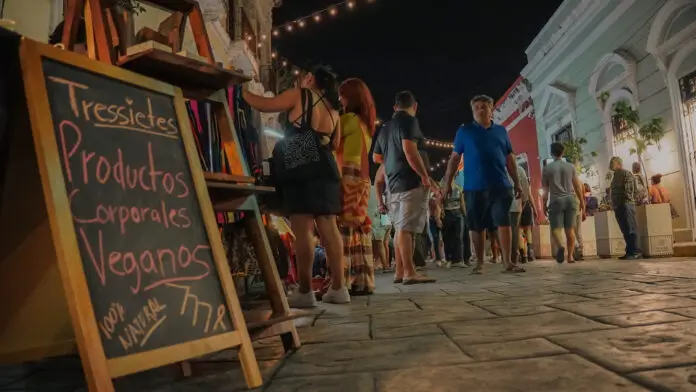The City Council has little influence on economic matters, but according to economist Gabriel Rodríguez Cedillo, an academic at the Faculty of Economics at Uady, it is time to specialize in addressing the city’s purely economic aspect and think about sustainable growth.
In the first installment of a series on expectations in different areas of the new municipal administration, Dr. Rodríguez Cedillo says he sees the main challenges of the administration led by Cecilia Patrón Laviada in two categories:
Traditional challenges, such as maintaining good management of the tourism sector, attracting more visitors, generating local businesses through its credit mechanisms, and paying particular attention to informality.
The other challenge is maintaining the investment climate in various areas of the municipality with foreign capital.
“The City Council has little capacity in economic matters, starting from that, what remains is to address and manage the reduction of informality with its microcredit program that has existed for several administrations,” said the specialist.
“In the tourism sector, Mérida is a city that has been marketed as a tourist product, it has a good and extensive hotel and restaurant infrastructure, and the state’s economic growth is sustained by incoming investments.
Economic challenges for Mérida
“The important challenges for the mayor are to increase the number of visitors, have the capacity to generate more small and medium-sized enterprises, and ensure that the city continues to be attractive for foreign investment, which is what the municipality can do in economic matters.”
However, Dr. Rodríguez Cedillo said that Mérida is an expensive city, but this high cost exceeds municipal capacities because it has a market structure where companies determine the prices of goods.
But if it wants to have an impact on Mérida’s economy, it would have to change the management model from this administration. And for that, it must create a specific direction or area that generates economic competition and results in price stability.
“Monitor that the high cost of living in Mérida does not continue to increase due to this large demographic explosion,” he said.
Many people come to live in Mérida for its climate of tranquility, and that drives companies to invest, but they have to recover their investment with higher costs.
City of Services
“We are a municipality and a state of services, we do not produce many of the goods we consume, we have to bring them from the center of the country, or they arrive through the deep-water port of Progreso, which increases the prices of everything,” he pointed out.
“What could happen is that the City Council sets the economic challenge with a municipal agreement with the private sector to keep prices in check or ensure that companies pay decent wages so that this high cost of living obviously does not continue to increase.”
“In terms of housing, we have an oligopoly in the sector. Very few companies own the land where houses are built,” said the academic.
“The houses are for Yucatecans who earn high salaries or for external consumers who can pay those housing prices. This real estate development generates an increase in the prices of materials and consumption,” he explained.
“All this escapes the capacities of the City Council, the challenges are many in economic matters, we have a pressure on resources, excessive growth, very high transportation costs, both public and private, poor water management which is a systemic good and attracts many people who come from other places because in their place of origin there is no water availability.”
Mérida, Without a Sustainability Plan
“Mérida does not have a water sustainability plan, and this resource will impact the economic dynamics of the municipality in the future, especially in tourism and restaurants,” he warned.
“The economic capacities of the municipality are limited, especially due to the functions established by Article 115 of the Constitution.”
“The City Council has built its development focused on public services. It has not specialized in addressing the purely economic aspect of the city, it does not think about sustainable growth, good management of natural resources, optimization of public spaces, or decent jobs in the generation of local goods,” he emphasized.
“It has not had that focus; it has always been dedicated to urban development and public services over the last 30 years. But it is necessary to start working on economic matters, especially because one of the three strategic points is the excessive growth of Mérida.
Resources are being depleted, transportation costs, and the rent of premises or housing are already enormous,” he pointed out.
Source: Diario de Yucatan






